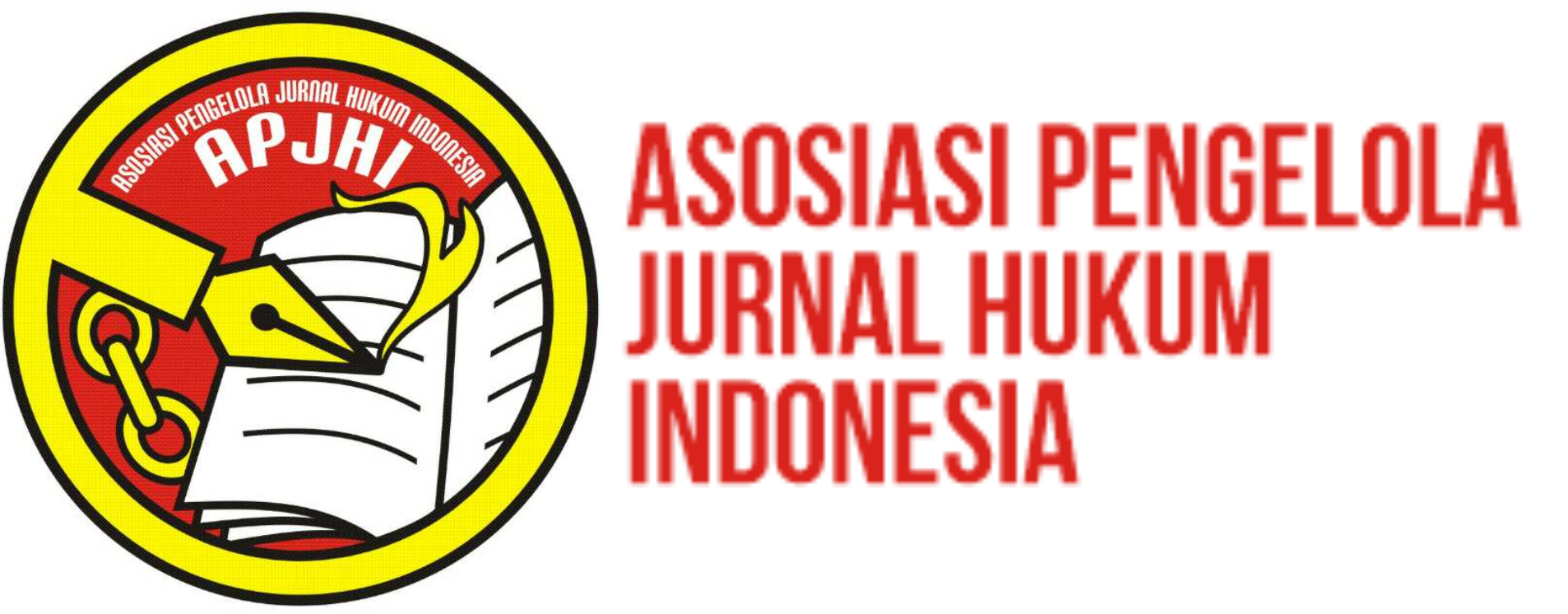Perlindungan Hukum Bagi Kreditor Terhadap Pelunasan Piutang Dari Harta Pailit
Abstract
Keywords: Protections of the law, creditor, Treasures of starc
Full Text:
PDF (Bahasa Indonesia)References
Abdul R. Saliman, 2014, Hukum Bisnis Untuk Perusahaan, Kencana, Jakarta. Ahmad Yani, dan Gunawan Widjaja, 2004, Kepailitan, Raja Grafindo Persada, Jakarta. Bagus Irawan, 2007, Aspek-Aspek Hukum Kepailitan Perusahaan Dan Asuransi, Alumni, Bandung. Bagus Irawan, 2007, Aspek-Aspek Hukum Kepailitan, dan Asuransi, Alumni, Bandung. Burhan Ashofa, 2001, Metodologi Penelitian Hukum, Rineka Cipta, Cetakan Ketiga. Jakarta. Burhan Bungin, 2007, Metodologi Penelitian Kualitatif: Aktualisasi Metodologi Ke Arah Ragam Varian Kontemporer, Raja Grafindo Persada, Jakarta. Fakultas Hukum Universitas Malikussaleh, 2015, Buku Panduan Tugas Akhir, Unimal Press, Lhokseumawe. Imran Nating, 2004, Peranan Dan Tanggung Jawab Kurator Dalam Pengurusan dan Pemberesan Harta Pailit, Raja Grafindo Persada, Jakarta. Jono, 2013, Hukum Kepailitan, Sinar Grafika, Jakarta. Kartini Muljadi, 2004, Kredior Preferens dan Kreditor Separatis Dalam Kepailitan, UndangUndang Kepailitan dan Perkembangannya: Prosiding Rangkaian Lokarya terbatas Masalah-Masalah Kepailitan dan Wawasan Hukum Bisnis Lainnya, Jakarta. Kitab Undang-Undang Hukum Perdata. Khairandy, 2002, Perlindungan Dalam Undang-Undang Kepailitan, Jurnal Hukum Bisnis, Jakarta. Muhammad Hadi Subhan, 2008, Hukum Kepailitan Prinsip, Norma, dan Praktik di Peradilan, Kencana, Jakarta. Man Suparman Sastrawidjaja, 2006, Hukum Kepailitan dan Penundaan Kewajiban Pembayaran utang, Sofmedia, Bandung. Mohammad Chidir Ali, 1995, Kepailitan dan Penundaan Pembayaran, Mandar Maju, Bandung. Munir Fuady, 2002, Hukum Pailit Dalam Teori dan Praktek, Citra Aditya Bakti, Bandung. Nanda Narendra Putra, Pengertian Utang, Kreditor, dan Debitor dalam KePailitan, http://nandoxodnan.blogspot.co.id/2013/09/pengertian-utang-Kreditor-dan-Debitor.html. Peter Mahmud Marzuki, 2008, Penelitian Hukum, Kencana, Jakarta. R. Suyatin, 1983, Hukum Dagang I dan II, Pradnya Paramita, Jakarta. Rahayu Hartini, 2007, Hukum Kepailitan, UM Press, Bandung. Ricardo Simanjuntak, 2002, Rancangan Perubahan Undang-Undang Kepailitan dalam Perspektif Pengacara (Komentar Terhadap Perubahan Undang-Undang Kepailitan), Jurnal Hukum Bisnis, Http://Www.Academia.Edu/31144303/Eksistensi_Pengadilan_Niaga_Dan_Perkembangan nya_Dalam_Era_Globalisasi. Ronny Hanitijo, 2004, Metodologi Penelitian Hukum, Ghalia Indonesia, Jakarta. Ropauan Rambe, Sandar Profesi Kurator dan Pengurus Indonesia, http://KreditorPailit.wordpres.com/standar-kurator-pengurus-indonesia/.
Soejono, dan Abdurrahman, 2003, Metode Penelitian Hukum, Rineka Cipta, Jakarta. Sri Redjeki Slamet, 2016, Perlindungan Hukum Dan Kedudukan Kreditor Separatis Dalam Hal Terjadinya KePailitan Terhadap Debitor, Fakultas Hukum Universitas Esa Unggul, Jakarta. Sunarmi, 2010, Hukum Kepailitan, Sofmedia, Jakarta. Sutan Remy Sjahdeini, 2010, Hukum Kepailitan; Memahami Undang-Undang No. 37 Tahun 2004 Tentang Kepailitan, Pustaka Utama Grafiti, Jakarta. Titik Tejaningsih, 2016, Perlindungan Hukum Terhadap Keditor Separatis Dalam Pengurusan Dan Pemberesan Harta Pailit, FH UII Press, Yogyakarta. Undang-Undang Nomor 13 Tahun 2003 Tentang Ketenagakerjaan. Undang-Undang Nomor 37 Tahun 2004 tentang Kepailitan dan Penundaan Kewajiban Pembayaran Utang. Zainal Asikin, 2013, Hukum Kepailitan Dan Penundaan Kewajiban Pembayaran Utang Di Indonesia, Pustaka Reka Cipta, Bandung.
DOI: https://doi.org/10.29103/jimfh.v1i1.2541
 Article Metrics
Article Metrics
 Abstract Views : 635 times
Abstract Views : 635 times
Refbacks
- There are currently no refbacks.
Copyright (c) 2018 Hamdi Hamdi, Sulaiman S, Teuku Yudi Afrizal

This work is licensed under a Creative Commons Attribution-ShareAlike 4.0 International License.
Universitas Malikussaleh
E-ISSN : 2798-8457



